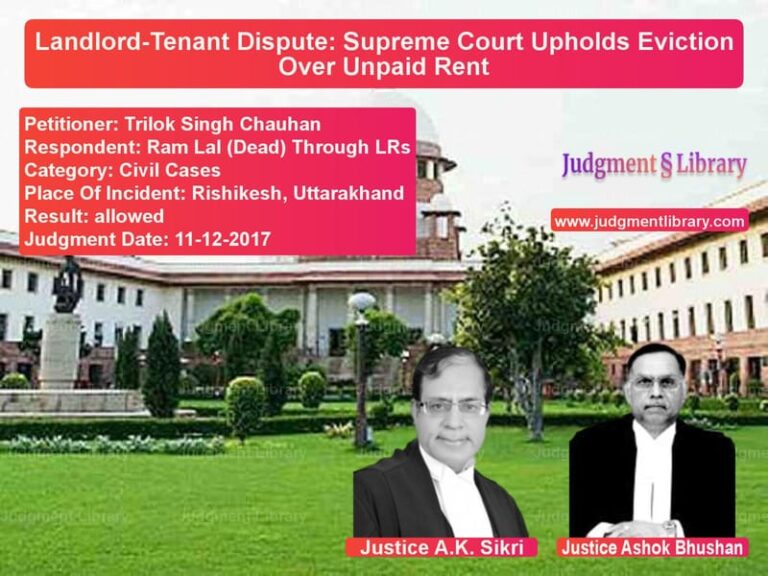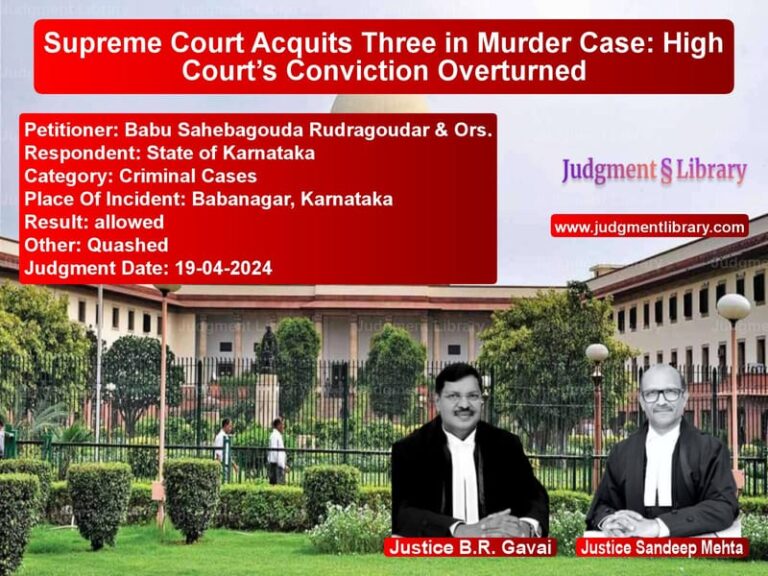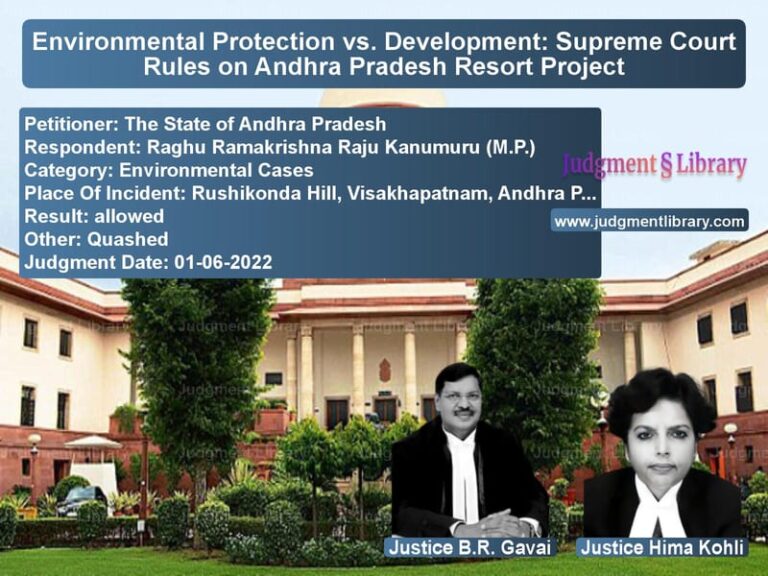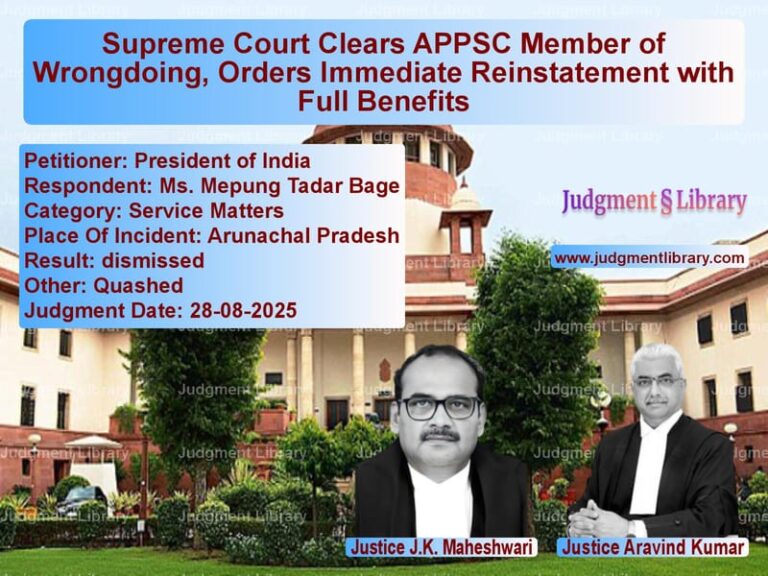Dowry Death and Cruelty: Supreme Court Upholds Conviction in Shanti Devi Case
The tragic demise of Shanti Devi, a young woman who suffered harassment and cruelty due to dowry demands, has once again shed light on the persistent social evil of dowry-related violence. The Supreme Court, in its final ruling, upheld the conviction of her in-laws under Sections 304-B and 498-A of the Indian Penal Code (IPC), reinforcing the legal framework to protect women from such heinous crimes.
Case Background
Shanti Devi was married to Raj Kumar on April 19, 1988. However, despite fulfilling customary obligations and providing dowry gifts, her in-laws, Jagdish Chand and Mishri Devi, continued to demand additional dowry, including a scooter and a television. When the demands were not met, Shanti Devi was subjected to persistent cruelty and was repeatedly turned out of her marital home, forcing her to take refuge with her parents.
On the night of December 6-7, 1994, she succumbed to severe burn injuries at her in-laws’ house. A post-mortem confirmed 100% burns, caused by kerosene, and ruled her death as due to shock. Her father, Kalu Ram, filed an FIR against her in-laws, leading to their prosecution.
Trial and High Court Proceedings
The trial court convicted the accused under Sections 304-B and 498-A IPC, sentencing them to ten years of rigorous imprisonment for the former and one year for the latter. The High Court, while upholding the conviction, reduced the sentence under Section 304-B IPC from ten to seven years.
Supreme Court’s Final Verdict
The Supreme Court, comprising Chief Justice Ranjan Gogoi and Justices R. Banumathi and Navin Sinha, examined the testimonies of key witnesses:
- PW-1, Dr. S.K. Gupta: Conducted the post-mortem and confirmed the cause of death.
- PW-6, Kalu Ram: Testified about his daughter’s repeated harassment and dowry demands.
- PW-7, Sarjit Singh: Corroborated Kalu Ram’s claims.
- PW-8, Sanjay: Son of the complainant, supported allegations of cruelty.
The Supreme Court ruled that since Shanti Devi’s death occurred within seven years of marriage and was preceded by dowry-related cruelty, the conditions under Section 304-B IPC were met. The presumption under Section 113-B of the Indian Evidence Act was applied, shifting the burden onto the accused to prove their innocence, which they failed to do.
Key Court Observations
The Court observed: “All three ingredients necessary to draw the presumption of commission of the offense under Section 304-B IPC have been proved and established by the prosecution. Consequently, the presumption under Section 113-B of the Indian Evidence Act has to be drawn against the accused, and in the absence of any defense evidence to rebut the same, the Court has to hold the accused guilty.”
Final Decision
The Supreme Court dismissed the appeal and upheld the conviction and sentence imposed by the High Court.
Legal and Social Implications
This judgment highlights the stringent application of dowry laws and the necessity of strict enforcement to protect women from domestic violence and dowry-related harassment. It also serves as a warning to those who still engage in such unlawful practices.
Petitioner Name: Jagdish Chand & Anr..Respondent Name: State of Haryana.Judgment By: Justice Ranjan Gogoi, Justice R. Banumathi, Justice Navin Sinha.Place Of Incident: Haryana.Judgment Date: 07-01-2019.
Don’t miss out on the full details! Download the complete judgment in PDF format below and gain valuable insights instantly!
Download Judgment: Jagdish Chand & Anr. vs State of Haryana Supreme Court of India Judgment Dated 07-01-2019.pdf
Direct Downlaod Judgment: Direct downlaod this Judgment
See all petitions in Dowry Cases
See all petitions in Domestic Violence
See all petitions in Murder Cases
See all petitions in Judgment by Ranjan Gogoi
See all petitions in Judgment by R. Banumathi
See all petitions in Judgment by Navin Sinha
See all petitions in dismissed
See all petitions in supreme court of India judgments January 2019
See all petitions in 2019 judgments
See all posts in Criminal Cases Category
See all allowed petitions in Criminal Cases Category
See all Dismissed petitions in Criminal Cases Category
See all partially allowed petitions in Criminal Cases Category







